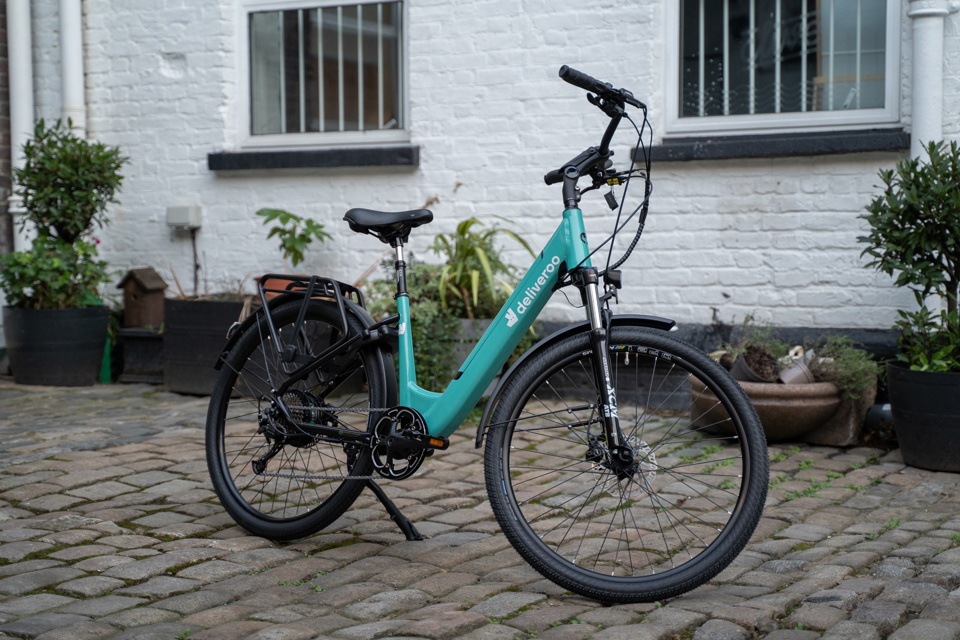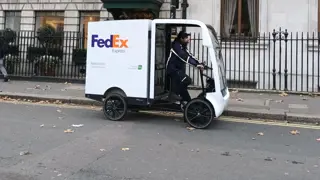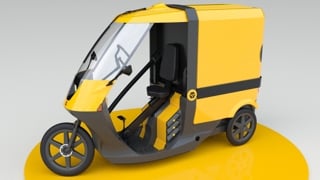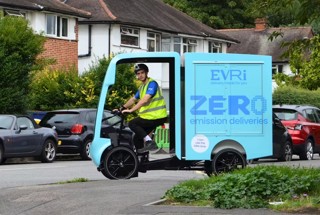Three fifths (60%) of London-based couriers and food delivery workers feel unsafe on the roads and 80% would prefer protected cycle lanes or low traffic routes if they could.
A new report by the Independent Workers' Union of Great Britain (IWGB) and climate charity Possible, made it clear that while traffic reduction is a climate and health issue, it is also an equality issue.
It said people from poorer and minority backgrounds are significantly more likely to be killed or seriously injured on London’s roads – there are more than 23,000 road casualties every year in London, with 95 people killed and nearly 4,000 seriously injured in 2023 alone.
Motorbike and mopeds most vulnerable road users

Motorbike and moped users are also the most vulnerable group of road users, being roughly four times more likely to be seriously injured and 11-15 times more likely to be killed on London’s users – and they are three times more likely to be involved in crashes where someone else, usually a pedestrian, is killed.
Transport for London (TfL)’s ‘Vision Zero’ strategy aims to eradicate road deaths in London by 2041.
The IWGB and Possible both said more support for the delivery drivers of London "would go a long way to achieving this goal".
Possible and IWGB are calling for a scrappage scheme and social leasing programme that would make legal e-bikes accessible to couriers, allowing for them to transfer millions of miles from fossil fuels to electricity and would have the added benefit of cutting road danger by getting people off motorbikes.
Additionally, the report recommends that better cycling infrastructure and more low traffic routes should be created to ensure safer journeys for couriers across London, while an improvement in pay and conditions for these workers would reduce the for speed and guarantee safer streets for everyone.
Shaf Hussain, a cycle courier and chair of the Couriers and Logistics Branch of the IWGB, said: “As a courier, I know first-hand the high pressure demands of the industry that means people like me have to rush from one delivery to the next in order to make our pay worth it.
“This comes out of a working culture that prioritises profit over people, meaning the safety of couriers and delivery workers across London is at risk.
"We need better working conditions and higher pay for couriers, who are often marginalised in other ways too, as well as safer transport options and routes of travel.
“We need broader support from politicians and delivery companies to be able to travel safer, produce fewer emissions, and better infrastructure so we can continue to work and bring people across London their takeaways and packages.”
Couriers are keen to switch to zero-emission options
Izzy Romilly, sustainable transport campaign & research manager at Possible, said many couriers are keen to move away from fossil-fuel powered modes of transport to greener options that are also safer and cheaper to run.
However, she said they are often held back by low wages and the pressures of the job, as well as concerns around the slower speeds and charging requirements of e-bikes.
Romilly said: "We’ve estimated that up to 10% of cycle journeys across London are undertaken by food delivery riders, but that’s only a proportion of the nearly 20,000 couriers who work in the city; the rest are using mopeds, motorbikes, or even illegally modified two-wheelers, contributing to air pollution and overall transport emissions.
“We hope that London’s boroughs, and TfL, urgently take into account the need for couriers to enjoy a safe working environment and accelerate action on reducing road danger, which isn’t moving anywhere near fast enough in many parts of the capital.
"With more Government support, better working conditions, and increased road danger reduction measures, couriers would be able to transfer millions of miles from fossil fuels to electricity while being safer on the streets.”
- The full Hot Wheels report can be viewed here.























Login to comment
Comments
No comments have been made yet.